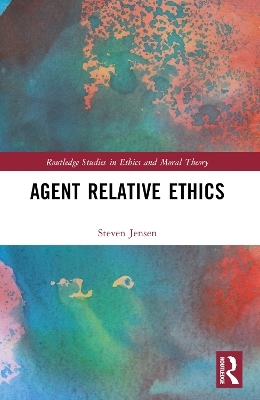
Agent Relative Ethics
Seiten
2024
Routledge (Verlag)
978-1-032-50272-4 (ISBN)
Routledge (Verlag)
978-1-032-50272-4 (ISBN)
- Lieferbar (Termin unbekannt)
- Versandkostenfrei innerhalb Deutschlands
- Auch auf Rechnung
- Verfügbarkeit in der Filiale vor Ort prüfen
- Artikel merken
This book asks what the world would look like if we adopted agent relativity wholeheartedly, clinging to no shred of absolute morality.
Agent Relative Ethics asks what the world would look like if we adopted agent relativity wholeheartedly, clinging to no shred of absolute morality.
Alastair MacIntyre’s haunting image of a post-apocalyptic world, in which our knowledge of ethics has been fragmented, poses a contrast between modern morality and ancient ethics. The two stand divided along the fault line of the nature of the good. Modern ethics has placed its stake in the absolute good, while ancient ethics rests upon the foundation of the relative good. Following the lead of Bernard Williams, Agent Relative Ethics identifies alienation as a disturbing symptom of the present focus upon absolute goods. It then completes the diagnosis of the malady afflicting modern moral theory by clarifying the difference between absolute and relative goods. The remainder of the book explores how agent relativity can overcome the modern fragmentation of our ethical knowledge. Not just any relative goods can rectify the modern disorder. Only shared goods, belonging to a union of individuals, are sufficiently robust to overthrow the contemporary despotism of neutral goods. These shared goods exhibit many parallels with common sense morality, including partiality, impartiality, punishment, and an antagonism toward harmfully using others, together with a more lenient attitude toward foreseeing harm. The final chapters probe the conditions, often unpalatable to the modern mind, by which ethics might be restored.
Agent Relative Ethics will be of interest to scholars and advanced students working in ethics and moral theory, ancient ethics, and the history of philosophy.
Agent Relative Ethics asks what the world would look like if we adopted agent relativity wholeheartedly, clinging to no shred of absolute morality.
Alastair MacIntyre’s haunting image of a post-apocalyptic world, in which our knowledge of ethics has been fragmented, poses a contrast between modern morality and ancient ethics. The two stand divided along the fault line of the nature of the good. Modern ethics has placed its stake in the absolute good, while ancient ethics rests upon the foundation of the relative good. Following the lead of Bernard Williams, Agent Relative Ethics identifies alienation as a disturbing symptom of the present focus upon absolute goods. It then completes the diagnosis of the malady afflicting modern moral theory by clarifying the difference between absolute and relative goods. The remainder of the book explores how agent relativity can overcome the modern fragmentation of our ethical knowledge. Not just any relative goods can rectify the modern disorder. Only shared goods, belonging to a union of individuals, are sufficiently robust to overthrow the contemporary despotism of neutral goods. These shared goods exhibit many parallels with common sense morality, including partiality, impartiality, punishment, and an antagonism toward harmfully using others, together with a more lenient attitude toward foreseeing harm. The final chapters probe the conditions, often unpalatable to the modern mind, by which ethics might be restored.
Agent Relative Ethics will be of interest to scholars and advanced students working in ethics and moral theory, ancient ethics, and the history of philosophy.
Steven J. Jensen is currently professor of philosophy at the University of St. Thomas in Houston, Texas. He has published primarily in the field of ethics. His books include Sin: A Thomistic Psychology, Knowing the Natural Law, and Good and Evil Actions.
1. Fragmentation 2. Alienation 3. Goods, Relative and Neutral 4. Getting beyond Oneself 5. Sharing by Desire 6. Harmful Using 7. Foreseen Harm 8. Double Effect 9. Punishment 10. Impartiality 11. Restrictions 12. Ethics 13. Unity
| Erscheinungsdatum | 05.08.2023 |
|---|---|
| Reihe/Serie | Routledge Studies in Ethics and Moral Theory |
| Verlagsort | London |
| Sprache | englisch |
| Maße | 152 x 229 mm |
| Themenwelt | Geisteswissenschaften ► Philosophie ► Ethik |
| Geisteswissenschaften ► Philosophie ► Philosophie Altertum / Antike | |
| Geisteswissenschaften ► Religion / Theologie | |
| ISBN-10 | 1-032-50272-X / 103250272X |
| ISBN-13 | 978-1-032-50272-4 / 9781032502724 |
| Zustand | Neuware |
| Haben Sie eine Frage zum Produkt? |
Mehr entdecken
aus dem Bereich
aus dem Bereich
unsere kollektive Verantwortung
Buch | Hardcover (2023)
wbg Theiss in Wissenschaftliche Buchgesellschaft (WBG) (Verlag)
35,00 €


